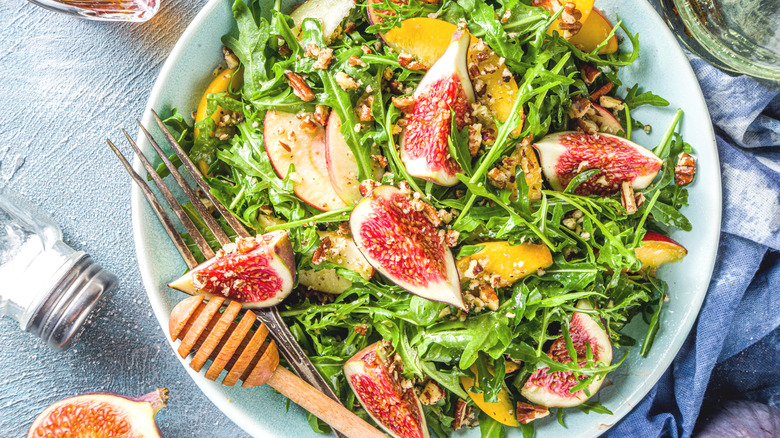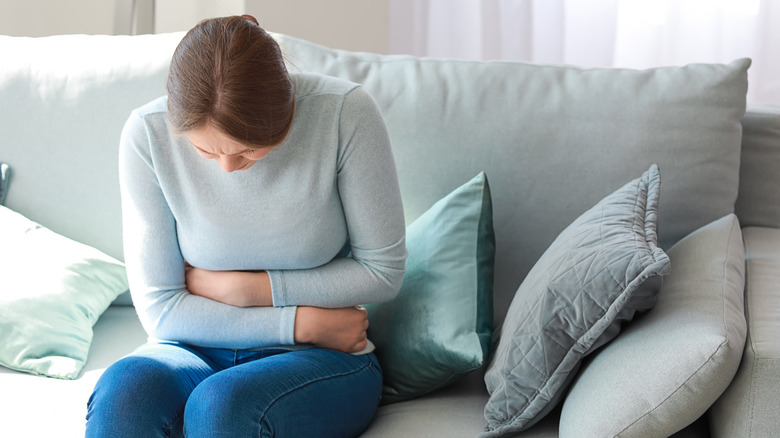The Real Reason Salads May Not Be So Great For Your Digestion
Seeing a fresh bowl of leafy greens can trigger the part of your brain that associates lettuce with thriving health, but your stomach may be telling you a different story. If you feel sluggish and bloated after you eat your healthy meal, your gut is likely struggling to digest the large amounts of raw vegetables — which can impact how many nutrients your body absorbs.
Well+Good reports that the pile of cold leaves could be serving up a little too much fiber after all. Gastroenterologist Robynne Chutkan, MD, FASGE, tells the outlet, "Even though fiber is great for you, too much in one sitting can kind of get stuck in your digestive tract." To help offset this issue, you can steam your vegetables before you dress them, she suggests. Plus, opting for spinach — which is much easier on the gut — can help you feel better post-salad as well.
On top of raw, hard-to-digest lettuce, your salad's toppings may be adding to the problem. Cauliflower, broccoli and legumes are all notoriously difficult for the gut to break down; when you add them onto raw lettuce, it's a recipe for gut discomfort. Dr. Chutkan suggests steering clear of some plant proteins like canned beans and chickpeas. But, if you want to keep the proteinous addition, just rinse them first and let them soak. "[Cooked beans] taste better, they're more nutritious, and they're often less gas-producing than the canned beans," she adds.
You may need more digestive enzymes to digest salads
One of the reasons your stomach may have trouble breaking down vegetables like the ones found in your favorite salad revolves around digestive enzymes. If you're low on the number of these, it can make it increasingly difficult to digest and fully absorb the nutrients in your bowl. "Digestive enzymes are proteins that break down food macromolecules into their smaller building blocks, in order to facilitate their absorption into the body through the gut lining," digestive health expert Vincent Pedre, M.D tells Mindbodygreen. "The body makes a variety of digestive enzymes, from amylase in saliva to proteases in the stomach to lipase in the small intestine."
Essentially, if you're experiencing bloating and gas rather frequently, your enzyme count could be to blame. Furthermore, those over 50 may produce less and less of these vital compounds — meaning that supplementing is key to having healthy digestion and full nutrient absorption in your system. Find an enzyme supplement that works for you to keep your digestion humming along.
Of course, when it comes to your salad, look for obvious bloating offenders like tons of salt and oil, Well+Good recommends. Just don't forget to steam your vegetables first and take your digestive enzyme before you dig in!

